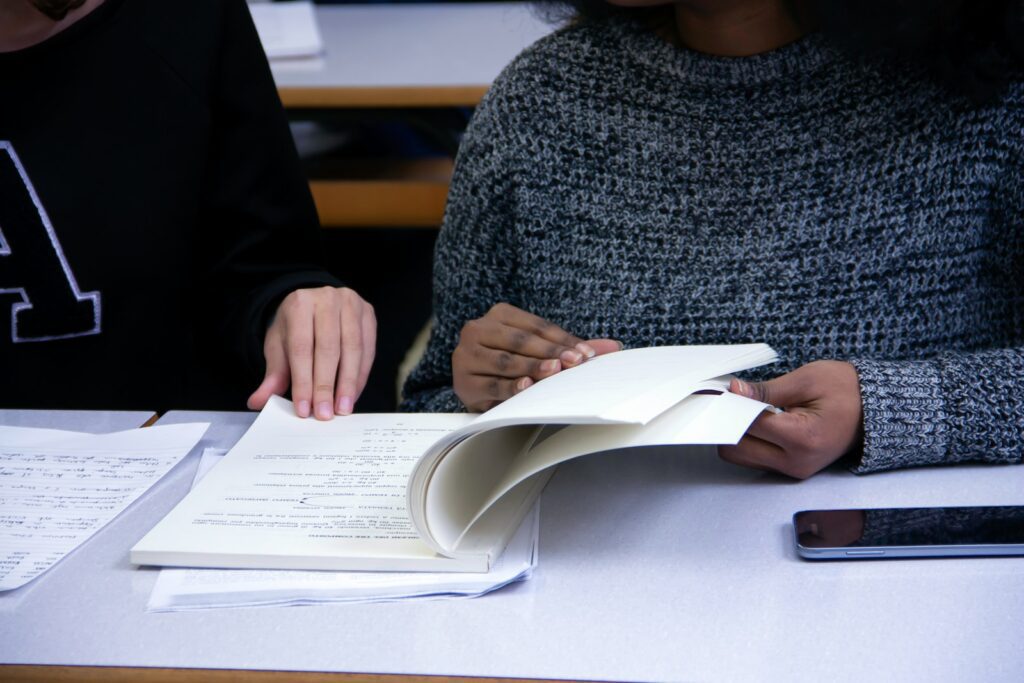Contents
- 1 Introduction
- 2 Importance of Effective Study Techniques for Exams
- 3 Time Management Strategies for Studying
- 4 Note-taking techniques for better retention
- 5 Memorization methods for exam preparation
- 6 Test-taking strategies for better performance
- 7 Utilizing technology for studying
- 8 Creating a study schedule and sticking to it
- 9 Tips for Staying Motivated While Studying
- 10 Conclusion: Mastering Study Techniques for Exams
- 11 FAQs About Study Techniques for Exams
- 11.1 How can I manage my time effectively while studying for exams?
- 11.2 What are some note-taking techniques that can help me retain information better?
- 11.3 What are some effective memorization methods for exam preparation?
- 11.4 What are some test-taking strategies that can help me perform better on exams?
- 11.5 How can I use technology to enhance my studying for exams?
- 11.6 What are some tips for staying motivated while studying for exams?
Introduction
Exams are an inevitable part of academic life, and they can be a significant source of stress for many students. However, with the right study techniques, you can approach exams with confidence and achieve the grades you desire. This article will explore various study techniques for exams that you can implement to improve your performance and reduce stress.
Whether you are a high school student preparing for your final exams or a college student studying for a major exam, the importance of effective study techniques cannot be overstated. These techniques can help you manage your time efficiently, retain information better, and perform well on exams.
In this article, we will discuss various study techniques, including time management strategies, note-taking techniques, memorization methods, test-taking strategies, and utilizing technology for studying. We will also explore how to create a study schedule and stick to it, as well as tips for staying motivated while studying.
By implementing these study techniques, you can approach exams with confidence and achieve the grades you desire. So, let’s dive in and explore the world of effective study techniques for exams!
Importance of Effective Study Techniques for Exams
Exams are a crucial part of academic life, and effective study techniques are essential to achieve success. Without proper study techniques, students may find themselves struggling to retain information and perform well on exams. In this section, we will discuss the importance of effective study techniques for exams and how they can help students achieve their academic goals.
Higher Retention Rate
One of the primary benefits of effective study techniques is that they can help students retain information better. When students use techniques like note-taking, summarizing, and active reading, they engage with the material and are more likely to remember it. This can be especially helpful when preparing for exams that require memorization of large amounts of information.
Better Time Management
Another advantage of effective study techniques is that they can help students manage their time better. With proper time management strategies, students can prioritize their study time and focus on the most important topics. This can help them avoid cramming and last-minute studying, which can lead to stress and poor performance on exams.
Increased Confidence
Effective study techniques can also help students build confidence in their abilities. When students feel prepared and confident, they are more likely to perform well on exams. This can be especially important for high-stakes exams like college entrance exams or professional certification exams.
Improved Test Scores
Finally, effective study techniques can lead to improved test scores. When students use techniques like active reading, note-taking, and memorization methods, they are more likely to understand the material and perform well on exams. This can be especially important for students who struggle with test anxiety or have difficulty with exams.
In conclusion, effective study techniques are essential for exam success. They can help students retain information better, manage their time more effectively, build confidence, and improve test scores. By using these techniques, students can achieve their academic goals and succeed in their chosen fields.

Time Management Strategies for Studying
When it comes to preparing for exams, time management is crucial. Without proper time management, you may find yourself cramming at the last minute or feeling overwhelmed with the amount of material you need to cover. Here are some effective time management strategies to help you study smarter, not harder.
Set Realistic Goals
Before you start studying, it’s important to set realistic goals for yourself. Break down the material you need to cover into manageable chunks and assign a specific amount of time to each task. This will help you stay on track and avoid feeling overwhelmed.
Use a Timer
Using a timer can be a helpful tool for managing your time effectively. Set a timer for a specific amount of time, such as 30 minutes, and focus on studying during that time. Once the timer goes off, take a short break before starting the next study session.
Prioritize Your Tasks
Another important time management strategy is to prioritize your tasks. Focus on the most important material first, and then move on to less important topics. This will ensure that you are making the most of your study time and are prepared for the most important material on the exam.
Avoid Procrastination
Procrastination is one of the biggest time-wasters when it comes to studying. To avoid procrastination, break down your study sessions into smaller, manageable tasks and set a deadline for each task. This will help you stay on track and avoid getting distracted by other tasks.
Take Breaks
Taking breaks is important for maintaining focus and avoiding burnout. Schedule regular breaks into your study sessions, such as a 10-minute break every hour. During your breaks, do something that relaxes you, such as taking a walk or listening to music.
By using these time management strategies, you can make the most of your study time and be better prepared for exams. Remember to set realistic goals, use a timer, prioritize your tasks, avoid procrastination, and take breaks. These strategies will help you stay on track, avoid burnout, and ultimately achieve success on your exams.
Note-taking techniques for better retention
Taking notes is an essential part of studying for exams. However, simply writing down everything the professor says is not an effective way to take notes. In fact, it can be counterproductive as it does not facilitate retention of information. Here are some note-taking techniques that can help you retain information better:
Use abbreviations and symbols
Using abbreviations and symbols can help you take notes faster and more efficiently. For example, instead of writing “because,” you can use the symbol “bc.” Similarly, instead of writing “and,” you can use the symbol “&.” This will save you time and help you keep up with the lecture.
Organize your notes
Organizing your notes is crucial for retaining information. Use headings and subheadings to categorize information. Use bullet points or numbering to highlight important points. This will make it easier for you to review your notes later.
Use different colors
Using different colors can help you categorize information and make it easier to remember. For example, you can use red for important points, green for examples, and blue for definitions. This will help you retain information better by associating it with colors.
Review and revise your notes
Reviewing and revising your notes is essential for retaining information. Take some time after each lecture to review your notes. This will help you identify any gaps in your understanding and clarify any confusing points.
Use technology to take notes
Using technology to take notes can be more efficient than using pen and paper. There are several note-taking apps available that can help you organize your notes and make them more interactive. For example, you can use Evernote, OneNote, or Google Keep.
In conclusion, taking effective notes is crucial for retaining information and preparing for exams. Using abbreviations and symbols, organizing your notes, using different colors, reviewing and revising your notes, and using technology can all help you take better notes. By using these techniques, you can improve your study skills and perform better on exams.

Memorization methods for exam preparation
One of the most challenging aspects of exam preparation is memorizing information. Whether you are studying for a math exam or a history test, memorization is a critical component of success. Fortunately, there are several effective techniques you can use to improve your memory and retain information.
1. Repetition
Repetition is a classic memorization technique that involves repeating information over and over again until it sticks. This technique can be particularly effective for memorizing lists or definitions. For example, if you need to memorize a list of vocabulary words, you can repeat them aloud several times until you can recall them from memory.
2. Visual aids
Visual aids can be a powerful tool for memorization. Creating diagrams, charts, or mind maps can help you visualize information and make it easier to remember. For example, if you are studying the human body, you can create a diagram of the different organs and their functions.
3. Mnemonics
Mnemonics are memory aids that help you remember information by associating it with something else. For example, you can remember the order of the planets in our solar system by using the mnemonic “My very eager mother just served us nine pizzas” (Mercury, Venus, Earth, Mars, Jupiter, Saturn, Uranus, Neptune, Pluto).
4. Chunking
Chunking involves breaking down information into smaller, more manageable chunks. This technique can be particularly effective for memorizing long strings of numbers or letters. For example, if you need to remember a phone number, you can break it down into smaller chunks (e.g., 555-123-4567 becomes 555-1234-567).
5. Active recall
Active recall involves testing yourself on the information you are trying to memorize. This technique can help you identify areas where you need to focus your studying and reinforce your memory. For example, you can create flashcards with questions on one side and answers on the other and quiz yourself regularly.
By using these memorization techniques, you can improve your ability to retain information and perform better on exams. However, it’s important to remember that different techniques work better for different people, so it’s essential to experiment and find what works best for you.
Test-taking strategies for better performance
After all the preparation and hard work, the day of the exam has finally arrived. It is important to have a clear mind and a positive attitude to perform well. Here are some test-taking strategies that can help you achieve better performance:
Read the instructions carefully
Before starting the exam, take a few minutes to read the instructions carefully. This will help you understand the format of the exam and the expectations of the examiner. Make sure you know how much time you have for each section and how many questions you need to answer.
Manage your time wisely
Time management is crucial during exams. It is important to allocate your time wisely and not spend too much time on one question. If you get stuck on a question, move on to the next one and come back to it later. This will help you to maximize your time and ensure that you answer all the questions.
Answer the easiest questions first
Start with the easiest questions first. This will help you gain confidence and momentum. It will also help you to save time for the more difficult questions.
Use the process of elimination
If you are unsure about an answer, use the process of elimination. Eliminate the options that are clearly incorrect and then choose from the remaining options. This will increase your chances of getting the right answer.
Check your work
Once you have completed the exam, take some time to check your work. Make sure you have answered all the questions and have not missed anything. Check for spelling and grammatical errors. This will help you to catch any mistakes and make corrections before submitting the exam.
By following these test-taking strategies, you can perform better in your exams and achieve better results. Remember to stay calm and focused during the exam and trust in your preparation. Good luck!
Utilizing technology for studying
In today’s digital age, technology has become an integral part of our lives, including our study routines. There are several ways in which technology can aid in studying for exams, making the process more efficient and effective.
1. Online resources
The internet is a vast resource of information, and there are several websites and online tools that can be used for studying. For instance, online flashcards, such as Quizlet, can be used for memorization. Khan Academy provides video tutorials on various subjects, and Coursera offers online courses from top universities.
2. Study apps
There are several study apps available for smartphones and tablets that can aid in exam preparation. For instance, Forest is an app that helps students stay focused by planting virtual trees that grow when they study. Another app, Evernote, can be used for note-taking, organizing study materials, and creating to-do lists.
3. Social media
Social media can be a distraction, but it can also be a useful tool for studying. For instance, joining study groups on Facebook or LinkedIn can provide a platform for discussing study materials, asking questions, and sharing notes. Twitter can also be used to follow experts in a particular field and stay up-to-date on the latest developments.
4. Digital textbooks
Digital textbooks are becoming increasingly popular, and they offer several advantages over traditional textbooks. They are often cheaper, more portable, and can be accessed from anywhere with an internet connection. Additionally, they often include interactive features, such as videos, animations, and quizzes.
5. Study games
Gamification is the process of adding game-like elements to non-game contexts, such as studying. There are several study games available that can make studying more engaging and fun. For instance, Kahoot is a game-based learning platform that allows students to create and participate in quizzes.
By utilizing technology for studying, students can make the process more efficient and effective. However, it is important to use technology in moderation and not let it become a distraction.

Creating a study schedule and sticking to it
Creating a study schedule is an essential part of effective exam preparation. It helps you stay organized and ensures that you cover all the necessary material before the exam. Here are some tips for creating a study schedule and sticking to it:
1. Start by identifying your goals
Before creating a study schedule, you need to identify your goals. What do you want to achieve? How much time do you have before the exam? What are your strengths and weaknesses? Answering these questions will help you create a realistic study schedule that meets your needs.
2. Break down the material into manageable chunks
Once you have identified your goals, break down the material into manageable chunks. Divide the material into topics or chapters and allocate a specific amount of time for each. This will help you stay focused and avoid feeling overwhelmed.
3. Allocate time for breaks and rest
Studying for long hours without breaks can lead to burnout and fatigue. Allocate time for breaks and rest in your study schedule. Take short breaks every hour or so and longer breaks every few hours. This will help you stay refreshed and focused.
4. Use a planner or calendar
Use a planner or calendar to create your study schedule. Write down the topics or chapters you need to cover and allocate specific times for each. Use different colors to differentiate between different subjects or topics.
5. Stick to your schedule
Creating a study schedule is pointless if you don’t stick to it. Make a commitment to follow your schedule and avoid procrastination. Remember, the more you procrastinate, the more stressful and overwhelming studying will become.
6. Be flexible
While it’s essential to stick to your study schedule, it’s also important to be flexible. Life happens, and unexpected events can disrupt your schedule. Be prepared to adjust your schedule accordingly.
In conclusion, creating a study schedule is an essential part of effective exam preparation. It helps you stay organized, focused, and motivated. By following these tips, you can create a study schedule that meets your needs and ensures that you are well-prepared for your exams.
Tips for Staying Motivated While Studying
Studying for exams can be a daunting task, and it’s easy to lose motivation along the way. However, staying motivated is crucial to achieving success in exams. Here are some tips to help you stay motivated while studying:
1. Set Realistic Goals
Setting realistic goals is an important step in staying motivated. Break down your study sessions into smaller, achievable goals. This will give you a sense of accomplishment and keep you motivated to continue studying.
2. Find a Study Group
Studying with a group of peers can be a great way to stay motivated. You can discuss difficult concepts, quiz each other, and keep each other accountable. Plus, studying with others can make the process more enjoyable.
3. Take Breaks
Taking breaks is essential to staying motivated. It’s important to take short breaks every hour or so to give your brain a rest. Use this time to stretch, take a walk, or do something you enjoy.
4. Reward Yourself
Rewarding yourself for your hard work can be a great way to stay motivated. Set up a reward system for yourself, such as treating yourself to a favorite snack or activity after a study session.
5. Visualize Success
Visualizing success can be a powerful motivator. Imagine yourself acing the exam and achieving your goals. This can help you stay focused and motivated during your study sessions.
6. Stay Positive
Staying positive is key to staying motivated. Avoid negative self-talk and focus on your strengths and accomplishments. Remember that setbacks are a natural part of the learning process and that every mistake is an opportunity to learn and grow.
By following these tips, you can stay motivated and achieve success in your exams. Remember to stay focused, take breaks, and reward yourself for your hard work. With the right mindset and study techniques, you can achieve your goals and excel in your exams.
Conclusion: Mastering Study Techniques for Exams
Congratulations! You have made it to the end of this comprehensive guide on study techniques for exams. We hope that you have found this article helpful in your quest to ace your exams. Here are some final tips and suggestions to help you master effective study techniques:
Recap of Key Points
We have covered a lot of ground in this article, but here are some of the key takeaways:
– Effective study techniques are essential for success in exams.
– Time management strategies can help you make the most of your study time.
– Note-taking techniques can improve your retention and understanding of the material.
– Memorization methods can help you remember important information.
– Test-taking strategies can help you perform better on the day of the exam.
– Technology can be a useful tool for studying.
– Creating a study schedule and sticking to it is crucial.
– Staying motivated is key to achieving your goals.
Final Tips and Suggestions
Here are some additional tips and suggestions to help you make the most of your study time:
– Take breaks: It’s important to take breaks regularly to avoid burnout and improve focus.
– Stay organized: Keep your notes and study materials organized to avoid confusion and save time.
– Practice, practice, practice: Practice problems and past exams to improve your understanding of the material and test-taking skills.
– Get enough sleep: Make sure you get enough sleep to improve concentration and memory retention.
– Stay positive: Believe in yourself and your abilities, and stay positive throughout the studying process.
Good luck!
We hope that you find these tips and suggestions helpful in your exam preparation. Remember, mastering effective study techniques takes time and effort, but the rewards are well worth it. Good luck on your exams!
FAQs About Study Techniques for Exams
How can I manage my time effectively while studying for exams?
One effective time management strategy is to create a study schedule and stick to it. This will help you prioritize your study time and ensure that you cover all the necessary material before the exam. Additionally, taking breaks and avoiding distractions can help you stay focused and make the most of your study time.
What are some note-taking techniques that can help me retain information better?
One effective note-taking technique is to use abbreviations and symbols to condense information. Additionally, organizing your notes using headings and bullet points can make it easier to review and retain information. Finally, summarizing key points in your own words can help you better understand and remember the material.
What are some effective memorization methods for exam preparation?
Some effective memorization methods include repetition, visualization, and association. For example, repeating key information out loud or writing it down multiple times can help you remember it better. Visualizing information in a memorable way or associating it with something else you already know can also help with retention.
What are some test-taking strategies that can help me perform better on exams?
One effective test-taking strategy is to read the instructions carefully and make sure you understand what is being asked. Additionally, budgeting your time and answering the easiest questions first can help you avoid running out of time or getting stuck on difficult questions. Finally, reviewing your answers and checking for errors can help you catch any mistakes before submitting your exam.
How can I use technology to enhance my studying for exams?
There are many ways to use technology to enhance your studying, such as using online resources for practice exams or flashcards, using apps to organize and manage your study schedule, or using digital tools to collaborate with classmates and study groups.
What are some tips for staying motivated while studying for exams?
Some tips for staying motivated include setting achievable goals, rewarding yourself for progress, and finding a study partner or group for accountability and support. Additionally, taking care of your physical and mental health by getting enough sleep, exercise, and healthy food can help you stay focused and motivated.

0 Comments